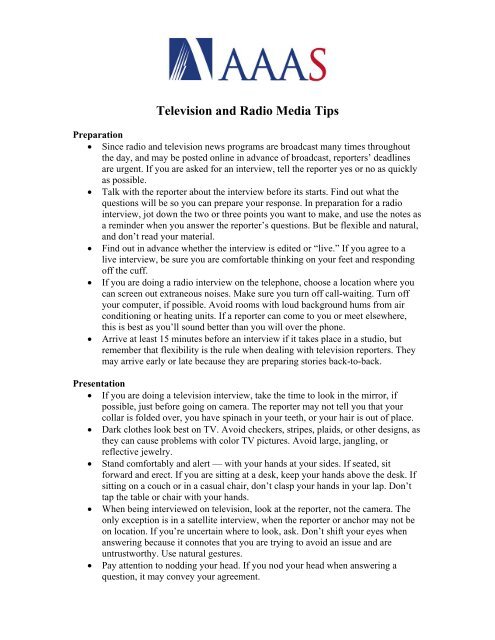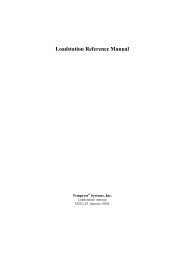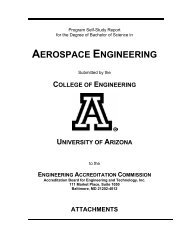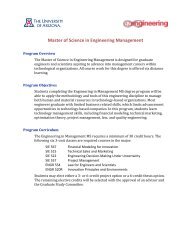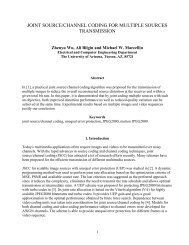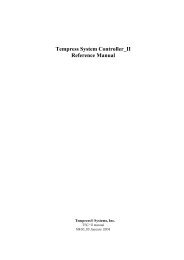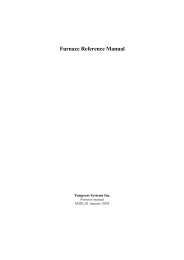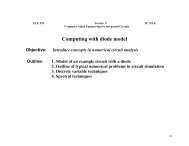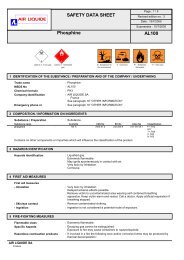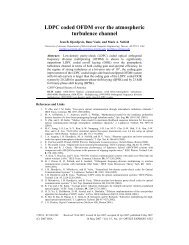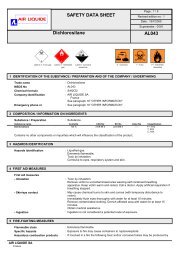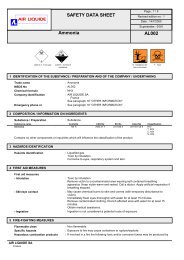Television and Radio Media Tips - Communicating Science
Television and Radio Media Tips - Communicating Science
Television and Radio Media Tips - Communicating Science
You also want an ePaper? Increase the reach of your titles
YUMPU automatically turns print PDFs into web optimized ePapers that Google loves.
<strong>Television</strong> <strong>and</strong> <strong>Radio</strong> <strong>Media</strong> <strong>Tips</strong><br />
Preparation<br />
• Since radio <strong>and</strong> television news programs are broadcast many times throughout<br />
the day, <strong>and</strong> may be posted online in advance of broadcast, reporters’ deadlines<br />
are urgent. If you are asked for an interview, tell the reporter yes or no as quickly<br />
as possible.<br />
• Talk with the reporter about the interview before its starts. Find out what the<br />
questions will be so you can prepare your response. In preparation for a radio<br />
interview, jot down the two or three points you want to make, <strong>and</strong> use the notes as<br />
a reminder when you answer the reporter’s questions. But be flexible <strong>and</strong> natural,<br />
<strong>and</strong> don’t read your material.<br />
• Find out in advance whether the interview is edited or “live.” If you agree to a<br />
live interview, be sure you are comfortable thinking on your feet <strong>and</strong> responding<br />
off the cuff.<br />
• If you are doing a radio interview on the telephone, choose a location where you<br />
can screen out extraneous noises. Make sure you turn off call-waiting. Turn off<br />
your computer, if possible. Avoid rooms with loud background hums from air<br />
conditioning or heating units. If a reporter can come to you or meet elsewhere,<br />
this is best as you’ll sound better than you will over the phone.<br />
• Arrive at least 15 minutes before an interview if it takes place in a studio, but<br />
remember that flexibility is the rule when dealing with television reporters. They<br />
may arrive early or late because they are preparing stories back-to-back.<br />
Presentation<br />
• If you are doing a television interview, take the time to look in the mirror, if<br />
possible, just before going on camera. The reporter may not tell you that your<br />
collar is folded over, you have spinach in your teeth, or your hair is out of place.<br />
• Dark clothes look best on TV. Avoid checkers, stripes, plaids, or other designs, as<br />
they can cause problems with color TV pictures. Avoid large, jangling, or<br />
reflective jewelry.<br />
• St<strong>and</strong> comfortably <strong>and</strong> alert — with your h<strong>and</strong>s at your sides. If seated, sit<br />
forward <strong>and</strong> erect. If you are sitting at a desk, keep your h<strong>and</strong>s above the desk. If<br />
sitting on a couch or in a casual chair, don’t clasp your h<strong>and</strong>s in your lap. Don’t<br />
tap the table or chair with your h<strong>and</strong>s.<br />
• When being interviewed on television, look at the reporter, not the camera. The<br />
only exception is in a satellite interview, when the reporter or anchor may not be<br />
on location. If you’re uncertain where to look, ask. Don’t shift your eyes when<br />
answering because it connotes that you are trying to avoid an issue <strong>and</strong> are<br />
untrustworthy. Use natural gestures.<br />
• Pay attention to nodding your head. If you nod your head when answering a<br />
question, it may convey your agreement.
• Talk clearly in short phrases. Try to keep your answers brief. A typical sound bite<br />
is 8 to 15 seconds. A long radio story is 45 seconds.<br />
• Typical TV stories run about 80 seconds. Be concise <strong>and</strong> to the point. Of the 80<br />
seconds, your sound bite will be 10-15 seconds. Keep in mind that even if you are<br />
asked lots of questions, most will not be used. And reporters will try to ask a<br />
question over <strong>and</strong> over to get a different (more interesting) response. Stick to your<br />
message. Answer each question as if it is the only answer that will make it to the<br />
air.<br />
• Try not to talk too fast.<br />
• Answer one question at a time <strong>and</strong> select the portion of a multiple-part question<br />
that you feel best addresses the issues you are discussing. Brevity is the key to TV<br />
interviews.<br />
• If you feel you didn’t make your point clearly, ask the reporter to record you<br />
again.<br />
• In edited interviews, do not answer questions too quickly; pause briefly before<br />
answering. This helps the reporter get a “clean” sound bite <strong>and</strong> also has the added<br />
benefit of allowing you time to think before you answer.<br />
• The reporter may ask you to incorporate the question into your response to give<br />
context. The question may be edited out of the broadcast.<br />
• Don’t repeat a reporter’s negative terms or phrasing. You don’t want that to be the<br />
clip that shows up on TV. If a reporter asks a negative question, you don’t have to<br />
answer it.<br />
After the Interview<br />
• If you are asked to “chat” while the cameraman shoots “B” roll (non-interview<br />
footage, cutaway shots, etc), be sure your body language <strong>and</strong> comments are<br />
appropriate.<br />
• Obtain a tape of the final broadcast if possible <strong>and</strong> critique your own<br />
performance, looking for ways you might improve in the future.


